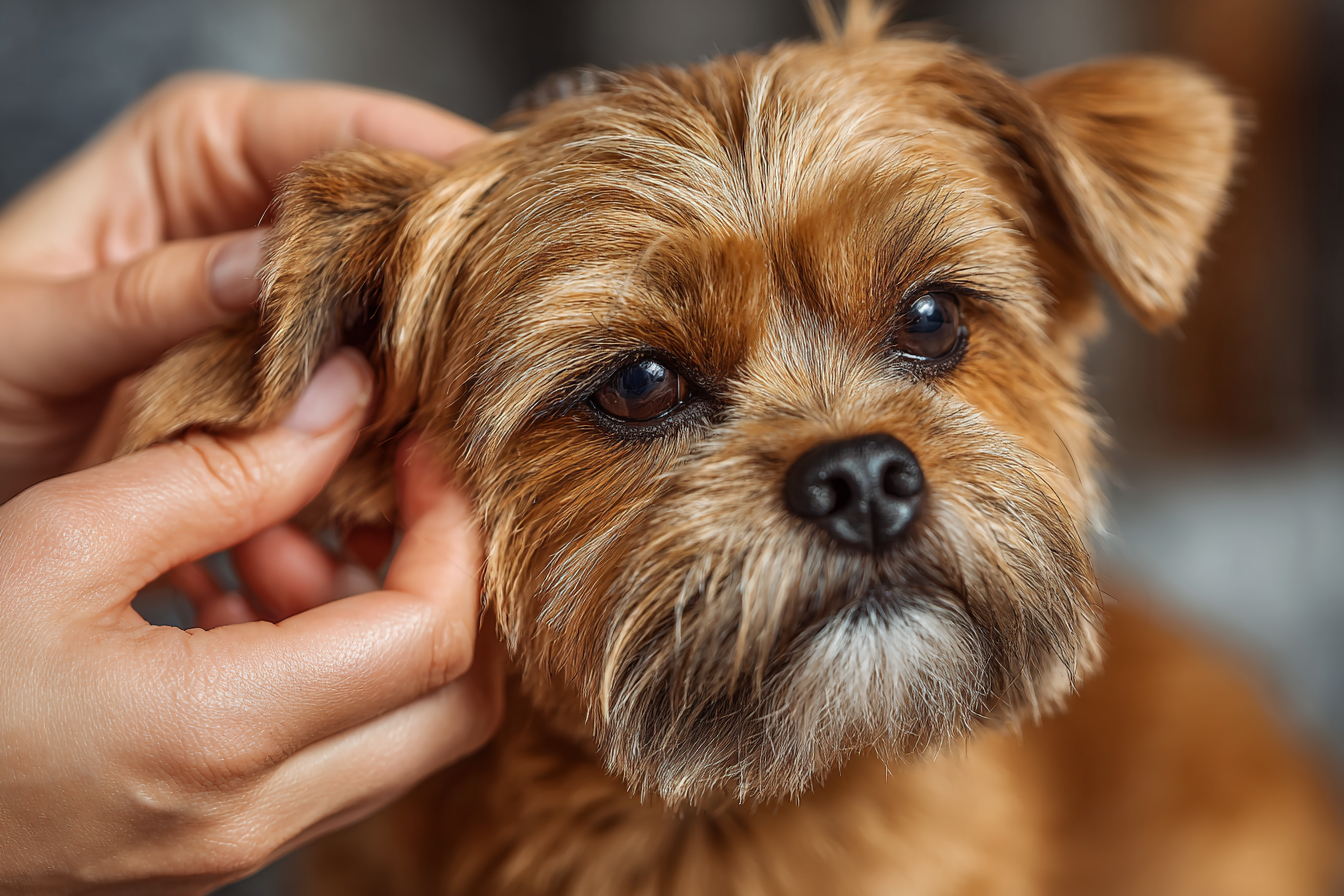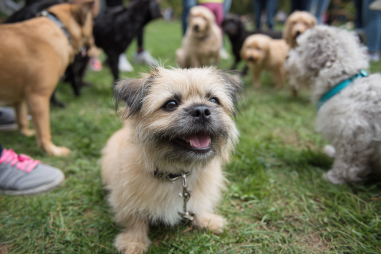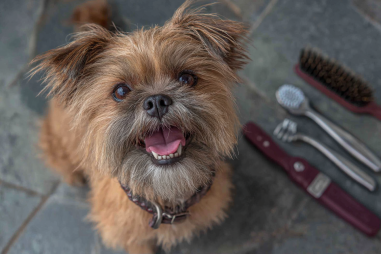Brussels Griffons are charming, small dogs known for their expressive faces and affectionate nature. While their playful personalities make them great companions, like any breed, they have certain health issues that owners should be aware of. Understanding these common ailments and learning how to care for your Brussels Griffon can help ensure they lead a long, happy, and healthy life.
Overview of Breed-Specific Health Concerns
Brussels Griffons are generally healthy dogs, but they do have a few breed-specific health problems that potential and current owners need to watch for. Because of their compact size and unique facial structure, they are particularly prone to respiratory, eye, and dental issues.
Some of the most common health concerns in Brussels Griffons include:
- Brachycephalic Airway Syndrome: Due to their flat faces and short noses, many Brussels Griffons experience breathing difficulties.
- Patellar Luxation: This is a condition where the kneecap slips out of place, which can cause pain and mobility problems.
- Hip Dysplasia: Although more common in larger breeds, hip dysplasia can sometimes affect Brussels Griffons, causing discomfort during movement.
- Eye Problems: Their prominent eyes are susceptible to injuries, infections, and conditions like cataracts and progressive retinal atrophy.
- Dental Disease: Small breeds often face issues like overcrowded teeth and gum disease, and Brussels Griffons are no exception.
- Syringomyelia: In rare cases, this neurological condition, which involves fluid buildup in the spinal cord, can occur.
Awareness and early detection of these conditions go a long way in managing your dog’s overall health.
Signs and Symptoms to Watch For
Recognizing early signs of health problems can make a significant difference in treatment outcomes. Owners should regularly observe their Brussels Griffon’s behavior, physical condition, and overall wellbeing. Some warning signs that indicate a visit to the vet is necessary include:
- Difficulty Breathing: Coughing, snorting, wheezing, or loud breathing sounds may signal brachycephalic airway issues.
- Limping or Reluctance to Move: These symptoms can indicate joint pain, patellar luxation, or hip problems.
- Eye Irritation or Discharge: Redness, excessive tearing, squinting, or cloudiness in the eyes should not be ignored.
- Excessive Scratching or Mouth Odor: Gum inflammation, bleeding, or bad breath could signal dental disease.
- Changes in Behavior or Coordination: Sudden difficulties walking or signs of pain might suggest neurological issues.
If you notice any of these symptoms, it’s important to consult with your veterinarian promptly to ensure proper diagnosis and treatment.
Preventative Care and Vet Visits
Regular veterinary check-ups form the foundation of good health for your Brussels Griffon. Since the breed is prone to specific concerns, your vet will likely recommend routine screenings and vaccinations tailored to your dog’s needs.
Key preventative care steps include:
- Annual or Biannual Vet Visits: These appointments allow for early detection of potential issues and keep vaccinations up to date.
- Weight Management: Maintaining a healthy weight reduces strain on joints and decreases the risk of many conditions.
- Exercise: Moderate daily activity helps preserve mobility and overall wellness but avoid overexertion, especially in hot weather due to their breathing sensitivities.
- Parasite Prevention: Flea, tick, and worm control protect your dog from common infections and diseases.
- Spaying and Neutering: Not only does this prevent unwanted litters, but it can also reduce risks of certain cancers.
By staying proactive with vet care and monitoring your dog’s health, many serious problems can be caught and managed early.
Dental Hygiene and Eye Care
Two areas requiring special attention for Brussels Griffons are their dental health and eye care due to breed-specific vulnerabilities.
Dental Hygiene
Dental disease is common in small breeds because their teeth can be crowded and prone to plaque buildup. Regular brushing, preferably daily, keeps their gums and teeth healthy. Using dog-specific toothpaste and dental chews can also help reduce tartar. Routine professional cleanings under veterinary supervision are essential, especially as your dog ages.
Eye Care
The characteristic bulging eyes of the Brussels Griffon are susceptible to irritation, scratches, and infections. To care for their eyes:
- Regularly check for redness, cloudiness, or discharge.
- Gently wipe eyes with a damp cloth if you notice debris or tearing.
- Protect their eyes from sharp objects and rough play.
- Seek veterinary advice if you observe any ongoing eye discomfort or vision changes.
Proper eye and dental care can prevent painful conditions and contribute greatly to your dog’s comfort and quality of life.
Emergency Care Tips
Despite your best efforts, emergencies can arise. Knowing how to respond quickly can save your Brussels Griffon’s life:
- Breathing Difficulties: If your dog suddenly has trouble breathing or is choking, try to calm them and clear any visible obstruction carefully. Immediate veterinary attention is critical.
- Injury to Eyes or Teeth: If your dog has a trauma to the face causing bleeding or swelling, keep the area clean and seek emergency care.
- Severe Limping or Paralysis: These could be signs of acute joint or neurological injury; limit movement and get to an emergency clinic promptly.
- Overheating or Collapse: Due to their brachycephalic nature, Brussels Griffons can easily overheat. Cool them down with water and move to a shaded, air-conditioned area while calling a vet.
Keep your vet’s contact info and nearest emergency clinic numbers handy for quick action in any situation.
Maintaining Your Brussels Griffon’s Health for the Long Term
Managing the health of your Brussels Griffon is a lifelong commitment that combines good nutrition, regular exercise, routine vet visits, and close observation of any changes in behavior or physical condition.
By understanding the breed’s specific health risks and providing attentive care, you can help your furry friend live a joyful and comfortable life. Always foster a loving environment and maintain an open dialogue with your veterinarian to adapt your care as your dog ages and their needs evolve.
Remember, a healthy Brussels Griffon is a happy companion, ready to share boundless affection and companionship with you for years to come.







